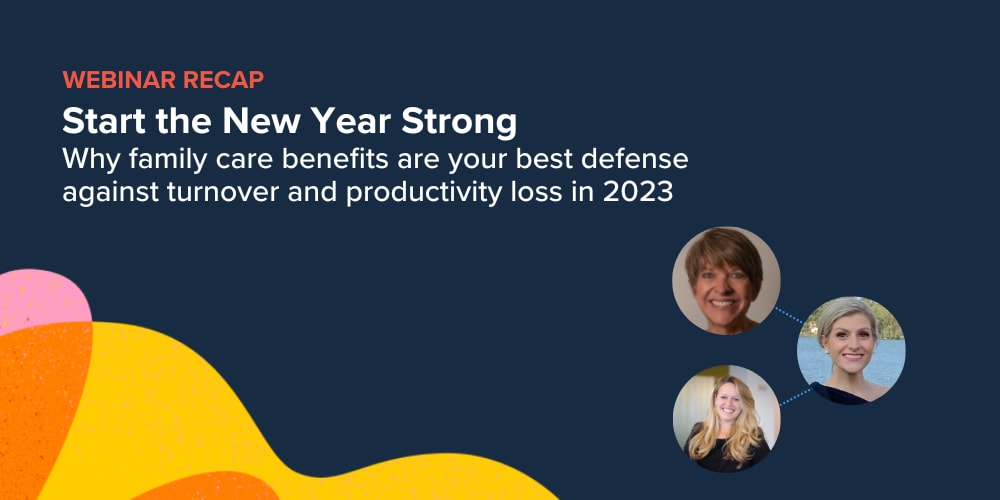Recent Care.com research with 500 HR leaders on The Future of Benefits confirmed two divergent but related trends. On the one hand, finding and keeping high-caliber employees is extremely difficult, with 78% of our respondents saying that recruitment and retention have become more challenging in the past year. On the other hand, employee productivity is on the rise. Seventy-six percent of our respondents reported an increase in productivity over the past year (vs. 16% reporting lower productivity), with 46% reporting that employees are much more productive now.
Another trend uncovered in the survey is the impact of care-related benefits. Sixty-three percent of our respondents said that they were aligning their benefits strategy with the goal of boosting recruitment and retention. And in support of this objective:
- 90% report that child care benefits have a positive impact (equal to retirement plans, and slightly out-performing even paid time off and health insurance)
- 86% report the same for senior care and for mental health support
Seventy-two percent are aligning their benefits strategy towards boosting productivity, and here too, care benefits have an important role to play, as:
- 88% cite child care benefits as having a positive impact
- 86% report the same for senior care benefits
- 87% regard mental health support as also supporting productivity
And the negative impact when care benefits are absent or inadequate is also striking. Forty-eight percent of our respondents indicated “desire for better child care or senior care benefits” as a reason cited for employees leaving their jobs in the past year, trailing only salary and the need for greater flexibility.
Regardless of what their primary business aims were, the majority of our respondents saw care benefits as helping them achieve every goal.
To learn more about how employers perceive and plan to use benefit strategies to support numerous business objectives, download the full Future of Benefits report.







